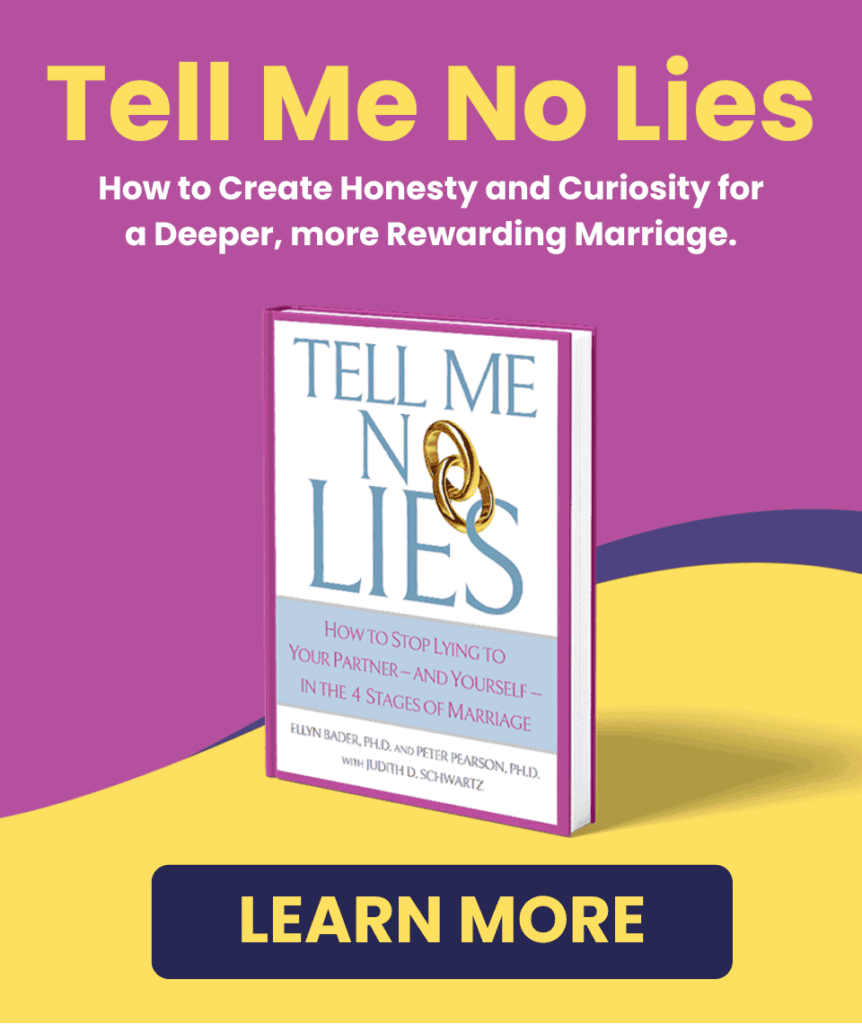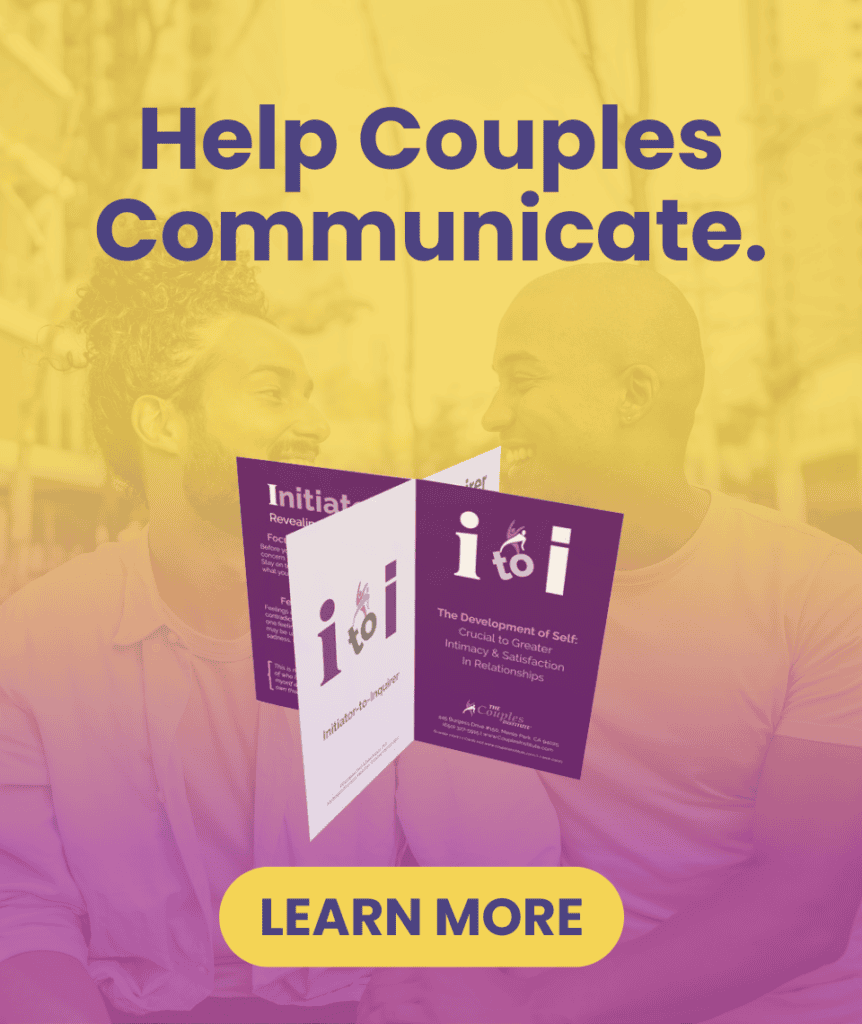Here’s something you can do for your relationship today. It’s called The Daily Double 30-Day Challenge. Twice a day – for 30 consecutive days – say or do something that communicates to your partner that you love, value or appreciate them.
*And – if you're now looking to up the ante – avoid negative behaviors at the same time (see below).
For positive actions, it can be as simple as:
- Telling your partner how attractive they look in an outfit
- Sending a loving or playful text message
- Picking up your clutter before going to bed
- Cooking a special meal
- Giving them time to go do something that is rejuvenating
- Washing their car or put gas in it
- Giving a foot or back massage
- Doing the dishes one night if that is not your regular job
- Giving a compliment to them in front of other people (this is very powerful)
- Being punctual one time if that is not your habit
Why do this practice? Your brain cannot be appreciative and simultaneously be angry, fearful or resentful. It’s like trying to breathe in and out at the same time – you can’t do it.
Other Ways to Be Positive:
- Listen to difficult comments and keep your cool.
- Recap what you are hearing in a conversation and help slow things down to a more manageable pace.
- Express compassion in a difficult situation.
- When you feel like you need to solve a problem, first ask your partner if they want advice.
- Use appropriate humor that your partner will appreciate.
- Ask several questions before butting in with your reactions to something that is hard to hear.
- Take several relaxing breaths instead of negatively commenting on your partner's annoying habit.
- Express appreciation and why you are appreciative. Send it in an email or a text.
- Take a time out instead of continuing a downward spiral argument.
- Apologize for your part in a bad situation or conversation.
- Go out of your way to do something nice for your partner.
- Channel kind and loving thoughts about your partner today.
- When you have a negative thought about your partner, shift to thinking about what you appreciate.
- Say both “please” and “thank you” today.
- Make better eye contact.
- Keep your voice tone positive during a difficult discussion.
- Tell your partner how you would like them to respond to you before talking about a difficult topic. For example, “I just want you to listen with concern. No advice needed, just support.”
- Look for something positive in your partner today and then express it.
- Ask questions about your partner’s perspectives and reality.
- Take the initiative to do something you know your partner would value (that you don't usually take the initiative to do).
- Think about how you aspire to be before having a difficult discussion, for example, to be curious about your partner’s perspective, be patient, be calm, be assertive, be concise, be considerate, be understanding, etc. (Focusing on how you aspire to be is an exceptionally good way to immediately have better discussions.)
- Today, practice being:
- Affectionate
- Kind
- Generous
- Supportive
- Caring
- Curious and asking good questions vs telling or preaching
- Understanding vs pushing my perspective
- Thoughtful and considerate
- Grateful for things you usually take for granted
And, if you do something positive today that’s not on the list, write it down and count it – and congratulate yourself.
*Now… what about those negative behaviors? Avoid them. Say good-bye. They undermine the positive actions you're taking every day… so it's time to toss them.
Today, avoid these negative behaviors:
- Interrupting
- Name calling
- Blaming/accusing
- Raising my voice inappropriately
- Being vague about what I want
- Criticizing what my partner wants
- Changing the topic during a difficult discussion
- Asking blaming questions like, “Why do you always…?”
- Psychoanalyzing my partner during a difficult discussion
- Becoming resentfully compliant
- Saying “never”
- Withdrawing
- Pouting
- Acting like a victim
- Any others that are habits for you but perhaps not on this list
If you were tempted to do one or more of the above negative behaviors above, but stopped yourself, AND took two positive actions toward your partner, then you have achieved success today.
(We said this was simple, but we didn't say this was easy.)
And don't forget to download your 30-Day Challenge calendar here.
What negative actions are you successfully avoiding? Do you have ideas in addition to the ones above? Add your experience to the comments below.
"*" indicates required fields




 We respect your privacy.
We respect your privacy.


I’m trying to avoid having an instant negative reaction when my husband does something for which I don’t immediately understand the reason. 97% of the time he has a good reason, it’s just not what I would have done… it’s frustrating that my brain wants to react like that! But I try to consciously be curious in the moment.
I have been working on not going into blaming/accusing mode. . . I remember Ellyn saying, “get curious instead of furious”. . so I am tapping on the my hand saying “love” to myself and then asking a curious question. I am keeping track of how many times I do this to build a new skill.
I find myself getting irritated with my husband when he isn’t doing something the way I think it should be done or on my timeline. I can be quick to judge him without stopping to ask more about why he’s doing it or what it is that is important to him. I often get scared to speak my mind in these times, wary that I’m going to create a big problem. However, when I’ve taken risks to state my concerns, without blame, I feel better and can often more forward without caring any negativity about him. He can also be known more for who he is and both of us can take another step towards greater appreciation for our differences. I have found that the positive strokes that we give and receive regularly have created much more of a secure bond between us, which in turn provides us with the resiliency to tackle and eliminate these negative learned behaviours.
Focusing on the Daily Double helps me to see how often I think that my husband should change. Replacing judgment and criticism with a genuine appreciation for one of his many great qualities truly is enriching and humbling.